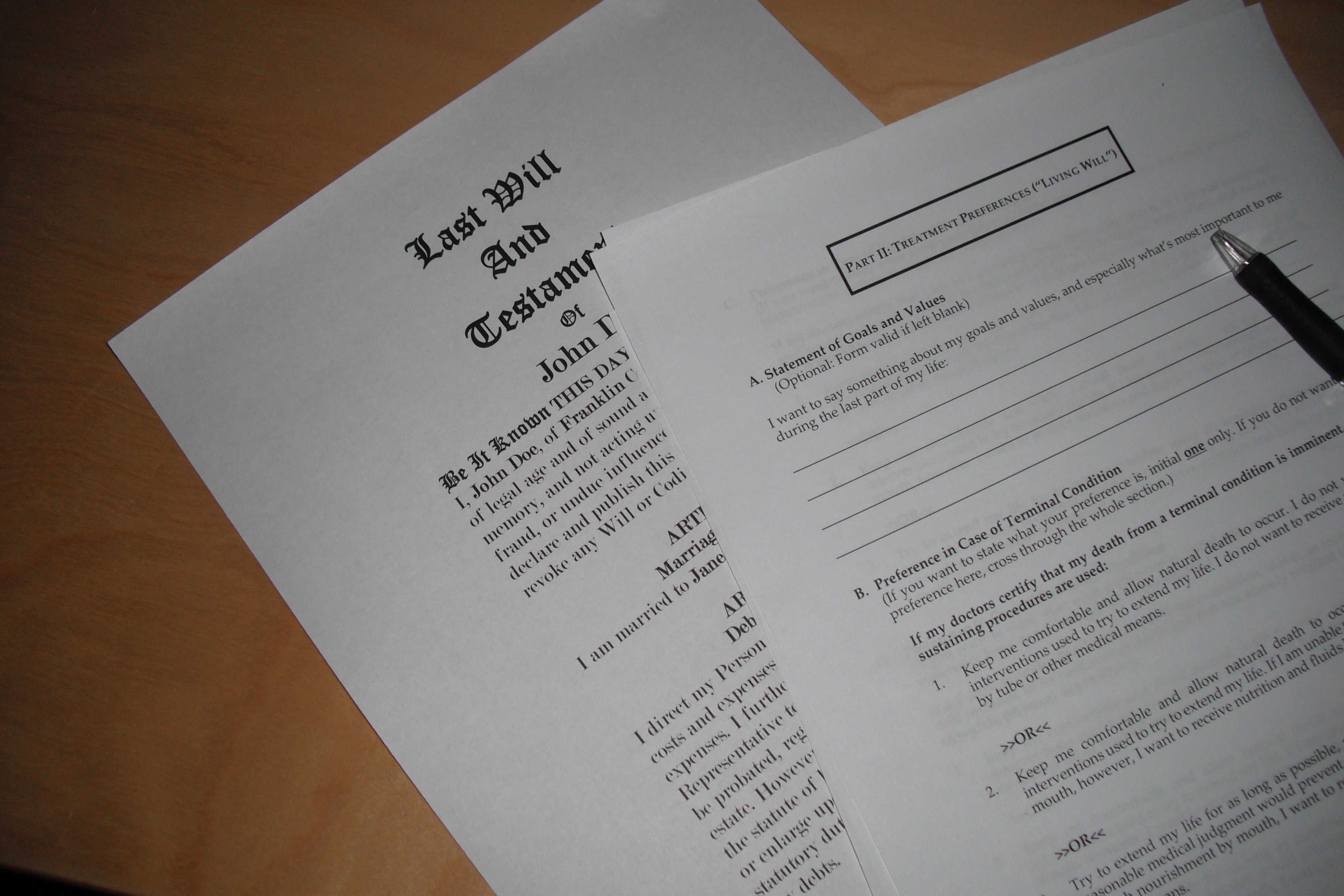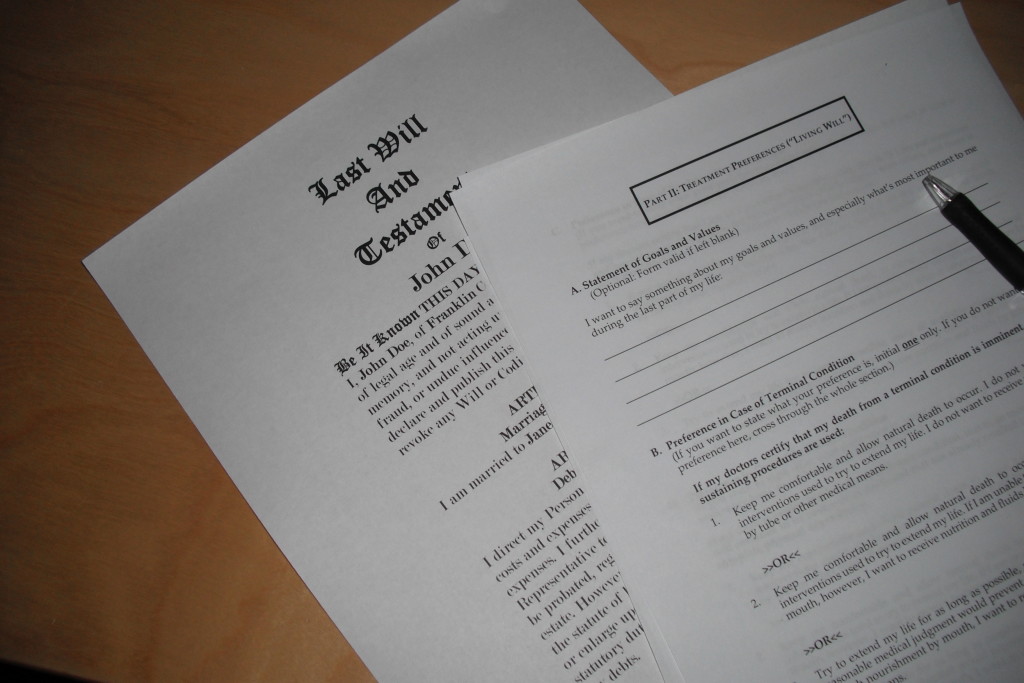Is Nomination a Myth?
By making a nomination in your assets would the assets devolve as mentioned in your Will or would it go to the person nominated absolutely? Increasing amount of misconceptions about the consequences of appointing a nominee are prevalent.
A nomination is made during the life of the holder / owner of the asset and comes into force after his death. The primary uncertainty appears to be whether after a nomination is made the nominee derives absolute right as the owner or the nominee is merely a trustee on behalf of others and acts in a fiduciary capacity for the legal heirs as per the succession law. A recent judgement passed by a learned single judge of the Hon’ble High Court at Bombay as discussed below has considered in detail the question as to whether by virtue of the nomination a person can claim exclusive rights to and ownership of the investments.
It is important to understand the effect of nomination under various laws.
The Black’s Law Dictionary, 8th edition, defines a “Nominee” as
“…..2. A person designated to act in place of another, usu. in a very limited way
3. A party who holds bare legal title for the benefit of others or who receives and distributes funds for the benefit of others”
There are various Acts, namely Companies Act, 1956 as also Companies Act 2013, the Maharashtra Co-operative Housing Societies Act, 1960, Banking Regulation Act, 1949, Provident Funds Act, 1925, Insurance Act, 1938, Government Saving Banks Act, 1873, Depositories Act, 1996, Mutual Funds Regulations, 1996, etc., that have provisions pertaining to nomination. Though all these Acts have provisions for Nomination the language of the provisions are different in the Acts.
It is pertinent to note that the Companies Act, 1956 as also Companies Act, 2013, Banking Regulation Act, 1949, Provident Funds Act, 1925, Government Savings Banks Act, 1873, Depositories Act, 1996 have a “Notwithstanding provision” with respect to nomination which is also notwithstanding the Testamentary Succession. It appears that it is this notwithstanding provision which caused the confusion with respect to the rights of the Nominee. Thus, due to the above Notwithstanding provision (which is notwithstanding Testamentary Succession) it was interpreted that upon the death of the Nominator the Nominee in respect of his assets is vested with all the right of the Nominator and becomes the owner of the asset.
The above interpretation was tested by the Hon’ble Supreme Court and various High courts in the following cases:
- Smt. Sarabati Devi and Anr. Vs. Smt. Usha Devi [1]
- Ram Chander Talwar and Anr. Vs. Devender Kumar Talwar and Ors. [2]
- Shri. Vishin N. Kanchandani and Anr. Vs. Vidya Lachmandas Khanchandani and Anr. [3]
- Shipra Sengupta Vs. Mridul Sengupta and Ors [4]
- Mr. Antonio Joao Fernandes Vs. The Assistant Provident Fund Commissioner and Ors. [5]
- Shashikiran Ashok Parekh Vs. Rajesh Virendra Agrawal & Ors [6]
After hearing the respective parties, it appears that though the legislature and the draftsman have opted to use the language as Notwithstanding provision including the Testamentary succession, the Courts are of the view that the above Acts cannot override the succession law and succession can be governed only by Succession Law i.e. Testamentary or Intestate as the case may be and not by any other Act. Such an interpretation is a deviation from the normal rule for interpretation of a statute, wherein a Notwithstanding provision would prevail over other provisions. In the above cases while dealing with the provision of nomination the Courts have held that despite the provision being “Notwithstanding” the same would not overrule the law of Testamentary and Intestate succession. The Nominee does not become the owner of the asset and is merely a trustee who holds for and on behalf of the legal heirs of the Nominator.
However, the Hon’ble Bombay High Court, in the case of Harsha Nitin Kokate Vs The Saraswat Cooperative Bank Ltd. and Ors [7] (“Kokate“) dealing with nomination in the Companies Act, 1956 held that as the provision is “Notwithstanding any other provisions in law” and also vests the asset in the nominee, the nominee takes the asset to the exclusion of the other heirs and becomes the owner of the asset. In this decision the court did consider the decision of the Supreme Court in Sarbati Devi, however, the Courts attention was not drawn to several binding decisions of the Supreme Court and Bombay High Court.
Subsequently, in or around March 2015, the same issue again came up before the Hon’ble Bombay High Court in the case of Jayanand Jayant Salgaonkar and Ors. Vs. Jayashree Jayant Salgaonkar and Ors [8] wherein it was contended that the Kokate case was per incuriam as the same did not consider all the Supreme Court and High Court Judgments. Accordingly, the Hon’ble Bombay High Court, after considering all the cases and argument of both the sides came to the conclusion that the Judgment in the Kokate case is per incuriam and therefore bad law.
Thus, in view of the Judgment in case of Jayanand Jayant Salgaonkar, it appears that whatever be the language of the section in the Acts relating to Nominee, a nominee is a mere trustee and holds the assets for and on behalf of the legal heirs. On death of the Nominator, the Company will confer the rights on the nominee but the same will not make the nominee the owner of the asset but only a trustee who holds the asset for and on behalf of the legal heirs of the deceased.
Thus, while carrying out succession planning, it is important to note that Nomination may not really serve the purpose as the Nominee will only act as a Trustee for and on behalf of the legal heirs of the Nominator.Nomination does not really serve the purpose for the Nominator in fact it helps the organisation (i.e. Bank, Mutual Fund, Insurance, etc.) as in case a Nomination has been effected, the organisation merely confers the right on the Nominee so that does not have to hunt / search for the legal heirs of the deceased. The assets of the Nominator (irrespective of Nomination) will devolve upon the beneficiaries in case of a Will and upon the legal heirs in the absence of a Will as per the respective laws of succession.
Therefore, it appears that the compliance of the procedure of nomination is merely a myth as it does not substitute a Will and merely appointing a nominee will not suffice. Further, it will not be out of place to point out that there appears to be a gap / disconnect between the legislature, draftsman and final interpretation by the Courts of the provisions of the various Acts. Needless to state the interpretation of the Courts would prevail and Nominee is considered only as a Trustee and not the owner.
– By Nirav Jani (Senior Associate & Team Leader) & Ritu Shetty ( Associate), Hariani & Co
Editor: Trupti Daphtary
[1] 1984 AIR SC 346
[2] (2010)10 SCC 671
[3] (2000)6SCC724
[4] (2009)10SCC680
[5] 2010(3)ALLMR599
[6] in the high court of Bombay Notice of Motion No. 2024 of 2011 in Suit No. 1267 of 2011
[7] 2010(112)BOMLR2014
[8] Notice of Motion No. 822 of 2014 in Suit No. 503 of 2014 and Testamentary Petition No. 457 of 2014 Decided On: 31.03.2015
![]()
Disclaimer: This article is for informational purposes only, and not intended to be an advertisement or solicitation. This article is not a substitute for professional advice. Hariani & Co. disclaim all responsibility and accept no liability for consequences of any person acting or refraining from acting on the basis of any information contained herein.
Copyright © : Hariani & Co. All rights reserved. Reproduction of this newsletter in whole or in part is allowed with proper reference to Hariani & Co.
LawSikho has created a telegram group for exchanging legal knowledge, referrals and various opportunities. You can click on this link and join:
https://t.me/joinchat/J_
 Serato DJ Crack 2025Serato DJ PRO Crack
Serato DJ Crack 2025Serato DJ PRO Crack











 Allow notifications
Allow notifications



Hello,
My Flat is in my dad’s name (Who is no more) and my mom is the nominee.
While writing letter to the building managing committee, the reply received was that as a nominee you cannot write letters and henceforth no reply will be given to you, as the house is not in your name (if you want answers to the queries than, the house has to be in your name)
Kindly suggest if it is so?